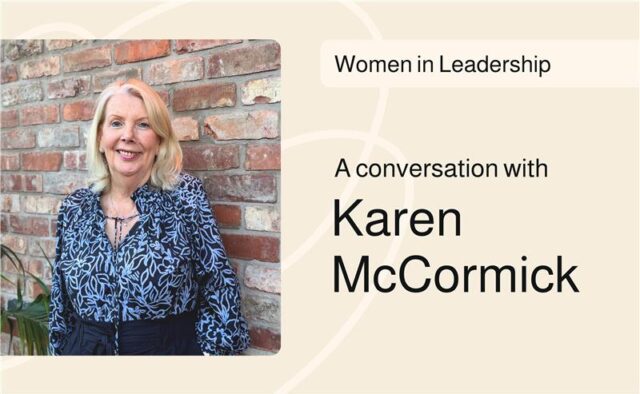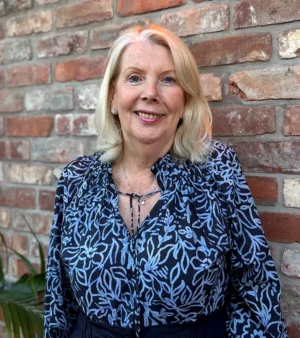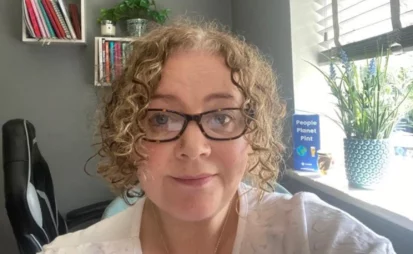As part of our ongoing focus on women in leadership, we speak to Karen McCormick, AG Impact’s Non-Executive Director and Chair. With a career spanning boardrooms, consultancy, and senior leadership, Karen is a true trailblazer in female leadership and has seen firsthand how culture and teamwork can make or break a business.
When I started, most leadership roles were held by men - I was often the only female in the room.
Has leadership come naturally to you?
“Leadership has been a journey for me. When I started, most leadership roles were held by men – I was often the only female in the room.
I became very aware of how motivated or unhappy people were in their work and was always intrigued by what exactly was, or wasn’t, causing this. I also realised the impact on the success of the business if the culture was demotivational . I think you can generally motivate most people if they understand and agree with the purpose, vison and values of the business and feel involved.
I’ve always asked a lot of questions and involved teams in the process. I have implemented feedback processes in all the business I have had leadership responsibility in, people on the front line have some of the greatest ideas to improve business performance . As a leader it’s important to listen and turn those thoughts , concerns and ideas into answers or actions. Enabling real engagement.”
My family thought I’d end doing what most women did - working in a mill. I had great parents, and I always wanted life to be better.
What has shaped your determination as a leader?
“It’s probably from my background growing up in Bradford. My family thought I’d end doing what most women did – working in a mill. I had great parents, and I always wanted life to be better. Bradford was a great multi-cultural environment with amazing influences from a cacophony of cultures. I was lucky to get a scholarship to study at grammar school during the 60s – a time of hope. The goal then was to join things up, to make a better world for all those around me.”
Why is clear strategy so important?
“It sounds obvious, but you really need to have a clear strategy if you want to succeed – and it needs to be understood by everyone . People who are part of the business need to know where they fit in the business and what’s expected of them, without being micromanaged. I’m a great believer in teamwork and non-prescriptive leadership so people can take the actions they know will achieve the goal – customers also need to know what you stand for!”
Positive things you say about people don’t always stick, but negative things can be absolutely destroying.
What does teamwork mean to you?
“The whole is much greater than any single part. Any good idea is made better by a team; individuals grow when learning and delivering in a team. Success in the business brings success for all of us. One of the things I think I’m pretty good at is creating an environment that’s not full of politics. When a team is all working together to a higher purpose and the language is about what we did or didn’t do well, it depersonalises everything and opens up real opportunity for growth. Lets face it – who wants to be in a catty, gossipy environment, its uncomfortable and kills progress completely diverting attention from what matters.
Have your views on leadership always been well received?
“I once spoke at a dinner full of male directors and CEOs about trust and performance. They told me I was naive to think most people want to come to work to do their best. But I still absolutely believe that. The first thing I look at if a business isn’t performing is: what’s getting in the way?”
Lets face it - who wants to be in a catty, gossipy environment.
How do you think about feedback?
“Positive things you say about people don’t always stick, but negative things can be absolutely destroying. When someone gives really negative feedback, it can hold them back for years. That’s why I’ve always tried to build cultures where feedback supports, rather than undermines.”
What makes a great leader?
“The best leaders I’ve worked with are in it for the greater good of the business and all that surrounds it. They want to make a difference for the business and the people. They’re switched on to the consumer, willing to take risks, and they give feedback – but in a way that builds, not destroys.”
They told me I was naive to think most people want to come to work to do their best. But I still absolutely believe that.




